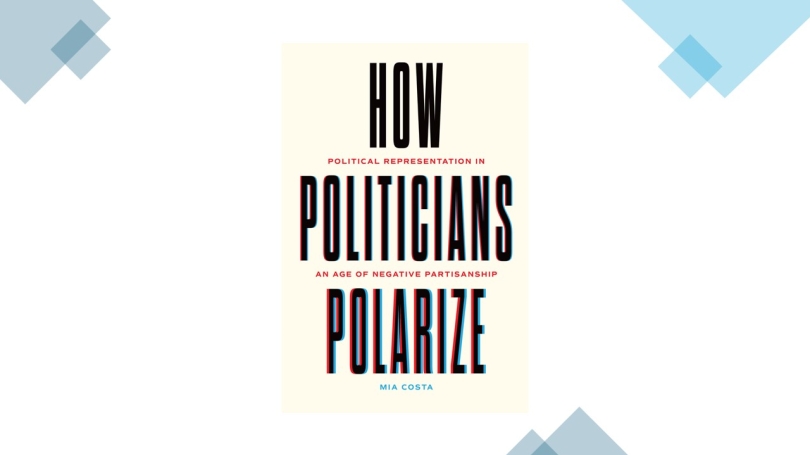
- Undergraduate
- Research
- About the Program
- News & Events
- People
Back to Top Nav
Back to Top Nav
Back to Top Nav
Back to Top Nav
Assistant Professor of Government Mia Costa, a member of the Steering Committee of the Program in Quantitative Social Science (QSS), recently published a book called, "How Politicians Polarize: Political Representation in an Age of Negative Partisanship."
Professor Costa started work on her book in 2020 and developed it over the next few years. It started with research that was published in an article in the American Journal of Political Science, "Ideology Not Affect: What Americans Want From Political Representation." Contemporary narratives about American politics would have us think that people embrace expressions of negative partisanship by politicians. Since Americans have increasing negative feelings about people in the other party, the idea is that they must favor when representatives bash the other side.
Across three experiments, Professor Costa found that this is not the case: Americans actually dislike when politicians make partisan attacks. Building on this initial research, Professor Costa then investigated the puzzle that followed– one that would become a central focus of the book: if Americans react unfavorably to polarizing rhetoric, then why do politicians do it? The answer lies in the incentives created by social media and campaign donations, as well as politicians' own feelings of animus toward the other party.
Professor Costa worked on writing How Politicians Polarize while she was a Visiting Scholar at the Center for American Political Studies at Harvard University in 2021-2022. She has since presented research from her book at Harvard, Yale, Washington University at St. Louis, Notre Dame, Aarhus University, University of Toronto, and most recently, MIT and UMass Amherst.
Professor Costa's research agenda focuses on questions in political behavior and representation answering how do people view and evaluate political representatives and how do elected officials represent their constituents. Her courses at Dartmouth focus on these topics as well, and she is set to teach a new class for QSS next year called, "Does Congress Represent America? By The Numbers."
How Politicians Polarize was published by the University of Chicago Press.
Here is the description from the publisher:
In How Politicians Polarize, Mia Costa draws on survey experiments, analysis of congressional newsletters and tweets, and data on fundraising and media coverage to examine how and why politicians rely so often on negative partisan attacks. Costa shows that most Americans do not like negative rhetoric, and politicians know this. Nonetheless, these kinds of attacks can reap powerful rewards from national media, donors, and party elites. Costa's findings challenge the popular notion that Americans are motivated more by their partisan identities than by policy representation. Her research illuminates how the political ecosystem rewards negative representation and how this affects the quality of American democracy.